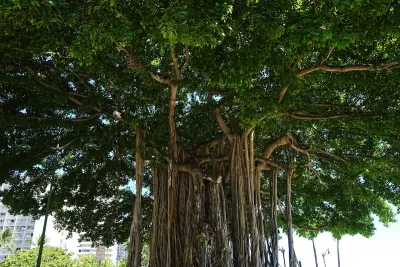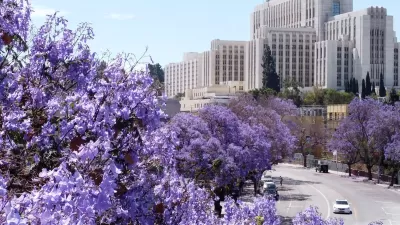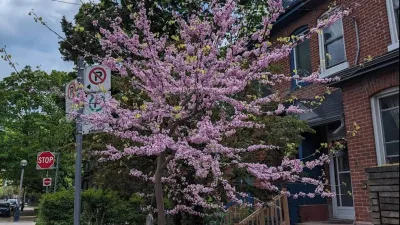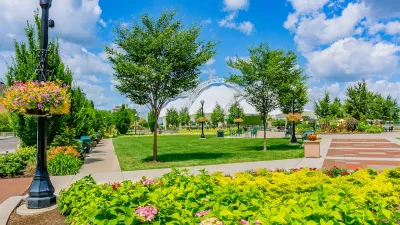Honolulu is expanding its urban tree canopy through community-driven park revitalization efforts, emphasizing the environmental, social, and cultural benefits of trees in creating a more resilient and equitable city.

Honolulu’s urban tree canopy plays a crucial role in community well-being, environmental resilience, and cultural connection, yet coverage remains uneven across the city. Measuring tree canopy helps identify gaps and prioritize areas for planting, particularly in underserved neighborhoods where extreme heat and limited access to green space are significant concerns. Urban trees provide essential benefits, such as cooling streets, filtering air, reducing stormwater runoff, and supporting local economies. Parks serve as critical spaces for expanding tree canopy and fostering social, economic, and environmental benefits, reinforcing their role in urban sustainability.
As Daniel Dinell and Lea Hong highlight in this article, two notable examples of community-driven greening efforts are ʻAʻala Park and Makalapa Neighborhood Park. ʻAʻala Park, historically a hub for political and cultural activities, faced social and environmental challenges but is now being revitalized through a collaborative process led by Trust for Public Land. Partnering with local stakeholders and the University of Hawaiʻi Community Design Center, the project envisions a park featuring native plantings, agroforestry, and a community garden. Similarly, at Makalapa Neighborhood Park, youth advocates successfully pushed for increased amenities and tree planting efforts, demonstrating the power of grassroots involvement in creating healthier urban spaces.
These efforts highlight a growing movement to restore and enhance Honolulu’s urban forests, emphasizing the importance of community participation in reclaiming and greening public spaces. The city’s Department of Parks and Recreation, alongside nonprofit groups and engaged residents, is making strides in accelerating tree planting and park improvements across Oʻahu. As Honolulu celebrates the Year of Our Community Forests, residents are encouraged to take part in tree-planting initiatives, volunteer programs, and advocacy efforts. By taking action — one tree, one park, one person at a time — Honolulu can reverse urban tree canopy loss and build a more resilient, greener future.
FULL STORY: Loving Trees, Loving Parks: An Rx For Our Urban Areas

Planetizen Federal Action Tracker
A weekly monitor of how Trump’s orders and actions are impacting planners and planning in America.

Chicago’s Ghost Rails
Just beneath the surface of the modern city lie the remnants of its expansive early 20th-century streetcar system.

San Antonio and Austin are Fusing Into one Massive Megaregion
The region spanning the two central Texas cities is growing fast, posing challenges for local infrastructure and water supplies.

Since Zion's Shuttles Went Electric “The Smog is Gone”
Visitors to Zion National Park can enjoy the canyon via the nation’s first fully electric park shuttle system.

Trump Distributing DOT Safety Funds at 1/10 Rate of Biden
Funds for Safe Streets and other transportation safety and equity programs are being held up by administrative reviews and conflicts with the Trump administration’s priorities.

German Cities Subsidize Taxis for Women Amid Wave of Violence
Free or low-cost taxi rides can help women navigate cities more safely, but critics say the programs don't address the root causes of violence against women.
Urban Design for Planners 1: Software Tools
This six-course series explores essential urban design concepts using open source software and equips planners with the tools they need to participate fully in the urban design process.
Planning for Universal Design
Learn the tools for implementing Universal Design in planning regulations.
planning NEXT
Appalachian Highlands Housing Partners
Mpact (founded as Rail~Volution)
City of Camden Redevelopment Agency
City of Astoria
City of Portland
City of Laramie





























